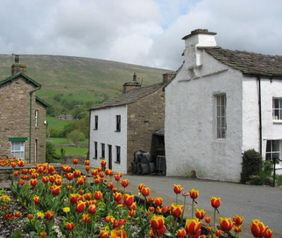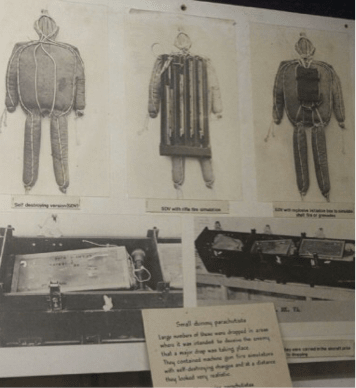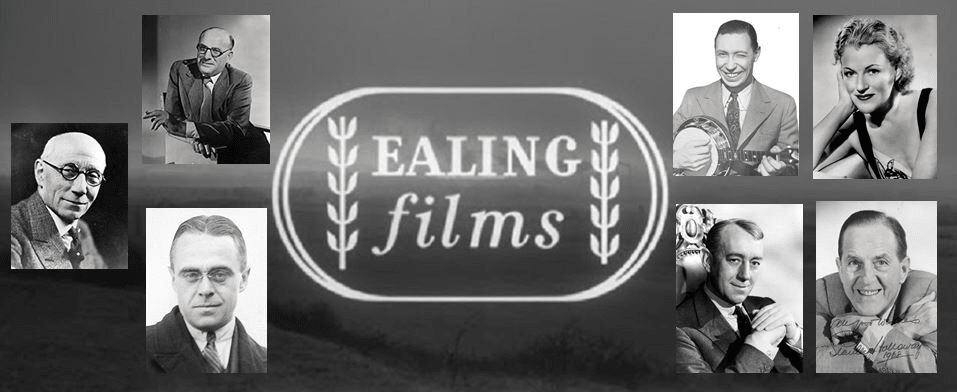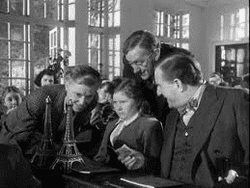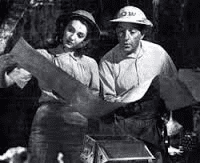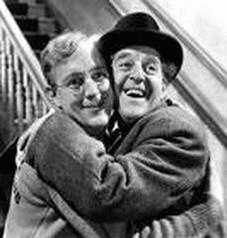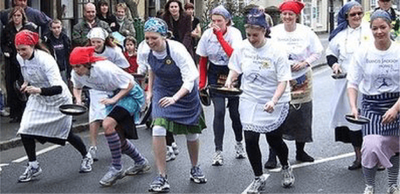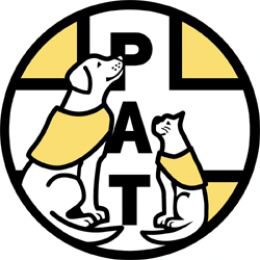|
Heard of the Ealing Comedies? No? That could mean you are still young! The Ealing comedies are classics of their day but may be a step too far back in time for some younger viewers, but you are missing a treat as they are still funny. Still aired on UK TV, especially during a wet afternoon in winter, they are a step back to a gentler time. In truth the time of filming was not that much gentler, as it was the post-war years following Hitler's demise, but at least on screen the niceties were still recognised. Ealing Studios - home of classic comedy The Ealing Studios, in West London, produced many classic British comedy films, at one time. Film Studios were on the site from as early as 1896 but they only became The Ealing Studios in 1931. Ealing released some classic films in the 1930's and 1940's, mostly thrillers, but the best, their comedy films, were released a little later. In fact the period between 1948 and 1955 was Ealing Studios most successful period of time. It seems such a long time ago now. Even this aged blogger was only born in 1952. However, we grew up with these films as my father, in particular, adored them. That is something he has passed on to me. I have seen these films many times down the years but have never tired of them. Most are in black and white and some, such as The Titfield Thunderbolt, appear to be tinted as the colours are so peculiar. In recent years we have seen a remake of The Ladykillers featuring Tom Hanks but for me the original wins out every time. So, especially if you have never watched an Ealing Comedy, have a look at some or all of the film reviews shown below and why not give one or two movies a whirl. These films are set in a gentler world, long since gone but, to my mind, as long as you accept the time difference, they are charming and funny in their own sweet way and of course, now, they are classics. With the austere period just after World War Two they must have been a breath of fresh air to movie-goers in the UK. Ealing Studios was bought by the BBC in 1955 and used a little. However in 1995 Ealing Studios was bought by the National Film and Television School. That is not the end of the tale though. In 2000 the studios were sold again and films have begun to be released from here once more. Personal favourites remain,
Passport to Pimlico Pimlico as a name certainly has an unusual twang to it and does sound almost foreign, yet it is a part of London. Passport to Pimlico is one of the now classic comedies which came out of the Ealing Studios, UK, during their prime in the 1940's and 1950's. This gentle comedy is set in the era, just after the Second World War, when rationing is still very much in operation. During a long hot summer, the discovery of an unexploded bomb eventually leads to an exciting discovery, which may lead the citizens of Pimlico to an apparent means of solving their shortages. A lot of this film was made on a set which was erected on a cleared bomb site in London. During the 50s and 60s there were many bomb sites dotted around the UK especially in cities. This film has delightful characters and a wealth of those actors and actresses, who were favourites during my childhood. It is filmed in black and white which certainly fits the time. The post war years were quite austere and houses and the environment of cities and towns tended to be rather grey. For younger viewers, the setting may seem a little strange. However for myself, and others of my generation, they were the norm. I was brought up in a city which had suffered heavy bombing during the war and we had many waste areas or 'bombies' as we called them close by. They were great for playing on and were just an accepted part of that time. Nowadays these areas, which had previously housed homes which had been bombed to smithereens, would seem odd to say the least. However whether you are young or old this film should entertain. It shows the determination of British people and the idiocy of bureaucracy. The dogged stubbornness of the citizens of Pimlico, or Burgundy, as it becomes known has all the British bulldog 'Spirit of the War'. There are some great characters such as: Stanley Holloway as Arthur Pemberton who is a feisty character and one of the mainstays of the plot. The wonderful Margaret Rutherford as eccentric Professor Hatton-Jones is only a minor player in this film but as always brings her own slightly mad style to the performance. A young Charles Hawtry plays a minor role. Another young actor of the day, John Slater, who went on to Z Cars fame, plays the love smitten Frank Huggins. Sydney Taffler, a well known actor of the day, plays Fred Cowan. Barbara Murray as Shirley Pemberton. Paul Dupuis as the charming Duke of Burgundy provides the love interest. Hermione Baddely as Edie Randall. Sam Kydd as Sapper. Michael Hordern as Inspector Bashford. Betty Warren as Connie Pemberton. There are many more players, with both large and small roles, but the above may be familiar to readers. Most of the players in this film are sadly no longer alive, let alone acting. The majority of the players in this film were either famous names at the time or were to become famous in the years that followed. The plot of this film evolved, somewhat, from actual war-time events. Apparently when the Dutch Royal family were in exile in Canada, the small area that they occupied was declared Dutch territory. This was done to satisfy Dutch law that demanded members of the royal family be born on Dutch soil. The comedy of Passport to Pimlico is gentle. There are comical observations of English citizens and their behaviour. The red tape of Whitehall was the same then as now. The camaraderie in the face of adversity, which the cockneys of Pimlico all experience is amusing and heart-warming. These characters go from strict restrictions to a time of anything goes, which leads to a feeling of being ostracised, before they are welcomed back into the fold of Great Britain. Eventually they realise that the restrictions are a small price to pay and that the benefits of being English outweigh the bad. However as one character states in the film 'It is their right as English citizens to not be English citizens'. If you watch the film, this will not seem as nonsensical a statement as it sounds. I have not really given any of the plot away and so if you have never seen this film but enjoy the nostalgic type of comedy which is Ealing Studios give this film a try. There is nothing offensive in the movie and it is suitable for any age of viewer. However I doubt that it will appeal to the very young. The Cast Stanley Holloway - Arthur Pemberton Betty Warren - Connie Pemberton Barbara Murray - Shirley Pemberton Paul Dupois - Duke of Burgandy Margaret Rutherford - Proffessor Hatton-Jones John Slater - Frank Huggins Jane Hylton - Molly Raymond Huntley - Wix Phillip Stainton - P.C. Spiller Sydney Tafler - Fred Cowen Frederick Piper - Garland Naunton Wayne - Straker Basil Radford - Gregg Michael Hordern - Insp Bashford Charles Hawtrey - Bert Fitch Director: Henry Cornelius. Assistant Director: Gordon Scott. Producer: Michael Balcon. Associate Producer: E.V.H. Emmett. Script: T.E.B. Clarke. Cinematography: Lionel Banes. Art Direction: Roy Oxley. Costume Design: Anthony Mendleson. Make-Up Artist: Ernest Taylor. Editing: Michael Truman. Sound: Stephen Dalby. Music: Georges Auric. Conductor: Ernest Irving. The Lavender Hill Mob
The Lavender Hill mob is yet another charming black and white comedy movie from the British, Ealing Studios. This film happens to be a firm favourite from this period of time, the 50s, and this studio. For me, although it is not my favourite, the Lavender Hill Mob certainly has much appeal. Alec Guinness plays a typical, gentlemanly, bank clerk of the 1950's, called Henry Holland. He appears to be shy, retiring and very much a job's worth. However behind his fastidious character lies a potential master thief, just biding his time. With a plan in mind, which has been hatching over many years, he just needs to find a means of moving the gold bullion, which he would have from such a robbery, without arising suspicion. When a new lodger moves into Henry's digs all the pieces of the plan begin to fall into place. With Mr Pendlebury the lodger and a couple of accomplices the Lavender Hill Mob is formed; Lavender Hill being a street in London. The affable Pendelbury is played perfectly by the late Stanley Holloway and the gang includes British comedy actors Alfie Bass and Sid James. All of these actors are now late greats but that is inevitable with the passing of time. When the robbery is committed there are all the necessary errors and problems needed to develop a good plot. This film is funny in a gentle way and very much depicts the era and London in the early 1950's. The players are all cast well and fit their roles nicely. The good over bad twist is unexpected but typical of films from this period. When the film was released in 1951 it was quite special. It won various awards such as:
Most of these films can be picked up cheaply on DVD and make a perfect gift. From time to time this film, along with the other Ealing comedies does the television rounds. As a film that is more than 60 years old that cannot be bad going. Watch this film if you like or fancy a period comedy with great actors, some funny scenes, no violence as such, nothing offensive and a film that is easy to watch. My favourite funny scenes include Henry Holland attacking himself, the race down the Eiffel Tower and the silly schoolgirls. This review gives little away and so the plot is not spoiled. Do not let the black and white aspect of viewing deter you from watching this film, as it adds to the period and full glorious colour would not be right somehow. A film worthy of the description, a classic. Loved it! Running Time 81 minutes Cast : Alec Guinness Stanley Holloway Sid James Alfie Bass Marjorie Fielding Edie Martin John Salew Ronald Adam Arthur Hambling Gibb McLaughlin Robert Shaw Audrey Hepburn
0 Comments
|
Archives
September 2021
Categories
All
|


